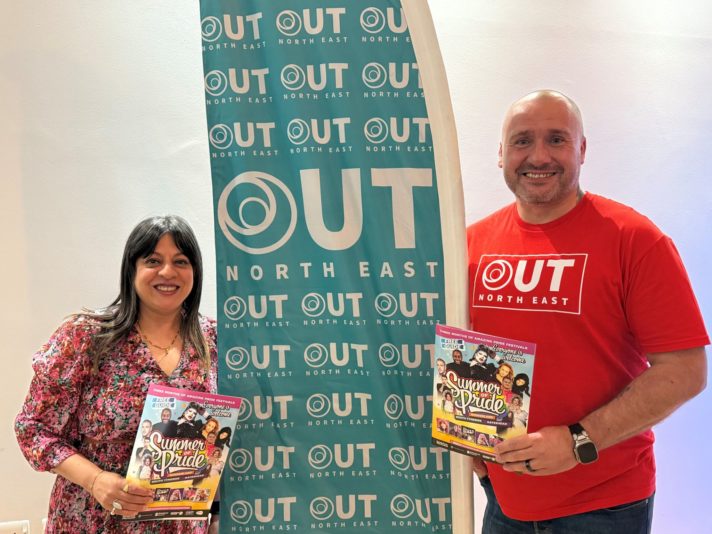After a chance meeting at a recent awards ceremony three highly successful business women met again for an afternoon of high tea to discuss what it is like for women in a business world.
Taking Part:
 Patricia Barclay:
Patricia Barclay:
Internationally experienced life science lawyer with extensive board level experience. After studying law at Edinburgh and Oxford universities, she qualified as a lawyer and went on to work for a variety of multinational life science/chemical companies before setting up Bonaccord, a law firm dedicated to supporting science based businesses. Patricia also offers training programmes in legal and business skills for commercial clients, professional bodies and academic organisations.
 Lilla Preston:
Lilla Preston:
Lilla studied Psychology at Reading University and Business Management at Sunderland University. She moved to the north east in 1990 working as a business adviser for 10 years and joined the BIC’s as an Innovation Programme a year ago. Lilla’s key role involves engaging with businesses to support their innovation projects. Lilla is currently working on special projects for the BIC.
 Louise Hardy:
Louise Hardy:
Louise has worked as business mentor for the BIC for seven years. Prior to her role providing assistance, advice and support to businesses based onsite, working closely with the BIC’s business support team to offer a full range of services to new and developing businesses, prior to her move to the BIC; she worked for over 30 years as a bank manager. Louise launched the successful networking club for BIC clients. Louise opened the discussion;
LH: The recent statistics that women are representing 42 per cent of the UK workforce along with 55 per cent of university graduates is a fantastic thing. When I think back to my childhood, women were always at home and that has completely changed now there are so many opportunities available.
PB: Yes but if we are going to see more of these highly qualified women at board level they have to be promoted up through the departments to get there, because at the moment, certainly on the boards that I see in science and engineering it is unusual to see women representing the major operating divisions such as sales or manufacturing; any women that are appointed tend to be there for technical skills such as head of legal or HR. The other option of course is to appoint female nonexecutives but that just benefits a small group of the great and the good and is little more than window dressing.
LP: From what Louise is saying at least we have more women in education and in particular participating in our economy. But I think the thing holding women back in the science, technology and IT sectors is confidence and a lack of self belief. Women have the skills and the capabilities but they are more hesitant.
PB: They say that a woman would only apply for a role if she matches all the criteria; whereas a lot of men apply regardless of that. I receive some job applications from men that are completely irrelevant to my practice. Not sure if that is confidence or stupidity – you think they would at least look at the website before writing.
LH: Do you think maybe it is a Northern thing?
PB: No I don’t think so; women in the North are more used to going out to work, when I lived in Kent very few of the women I knew worked.
 LH: Yes what I mean, is it not a perception that in the North we have had the shipyards and the heavy industries; sectors women would just not have worked in. I think schools are trying to get more and younger people into science which is great thing, yes you would always get a few females embracing this subject but they were going against the grain. Nowadays it is much more acceptable to have women in science.
LH: Yes what I mean, is it not a perception that in the North we have had the shipyards and the heavy industries; sectors women would just not have worked in. I think schools are trying to get more and younger people into science which is great thing, yes you would always get a few females embracing this subject but they were going against the grain. Nowadays it is much more acceptable to have women in science.
PB: I went to an all girl’s school and the majority of the girls in my year were doing science. The problem was that we didn’t have any career guidance as to what we could do with the degree. I had considered doing chemistry but it was deemed my only option would then be a teacher. I had no interest in teaching. I think that this can also be attributed to role models, if you didn’t know someone with that sort of job then you don’t consider it, you did not know the opportunities that were out there. Some schools are really good now at making sure their students are aware of the range of careers available.
LH: Yes it is all about peers isn’t it.
PB: It is but it’s also about security. For example I meet a lot of women who when starting their businesses are worried to fully embrace their passion because they can’t give up their jobs, they need a steady income because of family.
LP: That is absolutely true, women seem to be more risk averse than their male counterparts.
PB: I see it as more of a sense of responsibility.
LP: Yes many consider the economics, the impact of what they are doing and require a sense of security to enable them to have the confidence to move forward.
PB: But I also think that many men feel they could get another job when they are older if the high risk option didn’t work out, Women may feel that if their new enterprise doesn’t work out who would employ them? You rarely see a business advertise for a position asking for 20 years of experience do you.
LP: But surely this is where self employment becomes a valid option. The number of self employed people is increasing and new business models emerging, making it much easier to be based at home, this is one of the reasons the BIC recently launched Open Space so that you can, regardless of your responsibilities, run a business in a more flexible way, if that is what’s required.
I think women need to celebrate their achievements and be empowered rather than focus on the barriers. Especially in industries that in the past, women would not have considered, technology, science, engineering, IT. It is fantastic the work women are already doing in these areas and they themselves then become fantastic role models for others.
PB: Of course just to turn it on its head, who actually says that women are not reaching their full potential? Are there women who want to venture into the science and technology sectors that do not do so? Do we have the statistics to back this statement up?
LP: It seems that women have the aspirations but they perceive barriers, I think that we should all, regardless of sex, be able to reach our full potential however vague and fluffy that sounds and I think that women expect to be in the boardroom, that is certainly true of you Patricia.
PB: Yes and to be honest most of my women friends are successful in business working in a man’s world but I suppose that isn’t typical. I do think it is odd though that we aren’t getting more women through in these sectors.
LP: It isn’t typical but wouldn’t it be wonderful if were more common place and then perhaps in ten years time a much higher percentage of businesses would be ran by women and they were bringing more products and new ideas into the market. We hope this will happen as the government invests more in these sectors and more women choose to train in the fields of science and technology.


